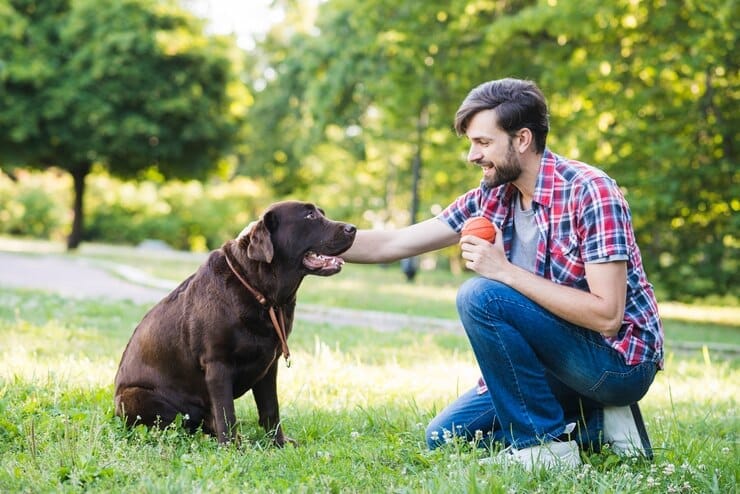Dogs are known for their ravenous appetites and their love for food. However, there may be situations where a dog may not eat for extended periods. It's natural for pet owners to worry about their furry friends' well-being when they don't eat, and they may wonder how long their dog can go without food. So, "How Long Can a Dog Go Without Eating?" Understanding the factors that influence a dog's ability to go without food can help pet owners better care for their beloved companions during times of decreased appetite or illness.

Understanding canine fasting is crucial to determine how long a dog can go without eating. Dogs are biologically designed to survive longer periods without food than humans. However, the duration of fasting depends on various factors such as age, breed, size, health, and activity level.
The health implications of not eating can be severe for dogs. Prolonged fasting can lead to malnourishment, weakness, dehydration, and other health complications. Pet owners should be vigilant and take necessary measures to ensure their dog's nutritional requirements are met.
Key Takeaways
- Dogs can survive longer periods without food than humans, but the duration of fasting depends on various factors such as age, breed, size, health, and activity level.
- Prolonged fasting can lead to malnourishment, weakness, dehydration, and other health complications in dogs.
- Pet owners should be vigilant and take necessary measures to ensure their dog's nutritional requirements are met to avoid health complications.
Understanding Canine Fasting
When it comes to fasting, dogs are known for their ability to go without food for extended periods. However, the duration of fasting that a dog can tolerate varies depending on various factors. In this section, we will discuss the biological adaptations that enable dogs to fast, as well as the factors that influence their fasting tolerance.
Biological Adaptations
Dogs have evolved to survive in the wild, where food may not always be readily available. As a result, they have several biological adaptations that enable them to go without food for extended periods. For instance, dogs have a slower metabolic rate than humans, which means that they burn calories at a slower rate. This adaptation helps them conserve energy when food is scarce.

Additionally, dogs have a more efficient digestive system than humans. Their stomachs are more acidic, which helps break down food more efficiently. This adaptation allows dogs to extract more nutrients from their food, which means that they can go longer without eating.
Factors Influencing Fasting Tolerance
While dogs have biological adaptations that enable them to fast, several factors can influence their fasting tolerance. One of the most significant factors is the dog's age and health status. Puppies and older dogs may not be able to fast for as long as healthy adult dogs.
The dog's size and breed can also influence their fasting tolerance. Smaller dogs have faster metabolisms and may need to eat more frequently than larger dogs. Additionally, some breeds have higher energy requirements than others and may need to eat more often.
Finally, the dog's activity level can also influence their fasting tolerance. More active dogs may need to eat more frequently than less active dogs. This is because they burn more calories and require more energy to sustain their activity levels.
Overall, dogs have several biological adaptations that enable them to go without food for extended periods. However, their fasting tolerance is also influenced by several factors, including their age, health status, size, breed, and activity level. Dog owners need to understand their dog's individual needs and provide them with the appropriate amount of food to ensure their health and well-being.
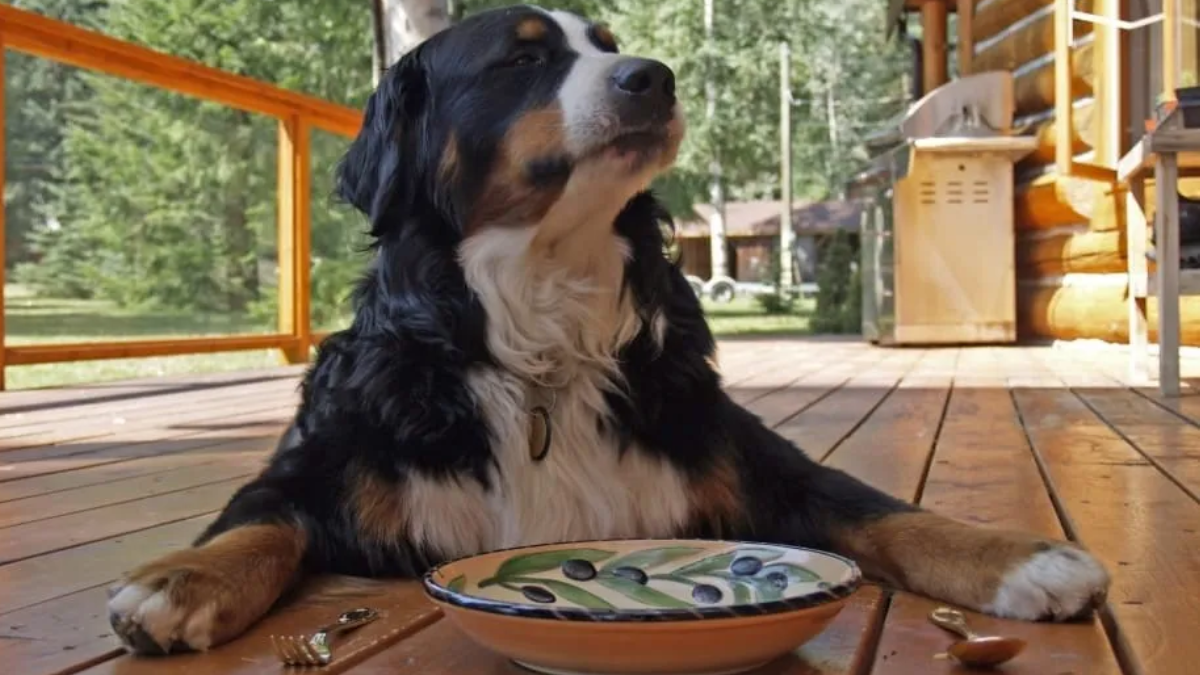
Health Implications of Not Eating
Short-Term Effects
When a dog doesn't eat for a short period, it can lead to a variety of health issues. Some of the short-term effects of not eating include:
- Weakness and lethargy
- Dehydration
- Hypoglycemia (low blood sugar)
- Vomiting and diarrhea
- Dizziness and disorientation
If a dog doesn't eat for more than 24 hours, it's important to seek veterinary attention to prevent these short-term effects from becoming more severe.
Long-Term Consequences
If a dog continues to go without eating for an extended period, it can lead to more serious health consequences. Some of the long-term consequences of not eating include:
- Muscle wasting and weight loss
- Organ damage and failure
- Immune system suppression
- Anemia
- Nutritional deficiencies
In severe cases, prolonged fasting can even lead to death. Pet owners need to monitor their dog's eating habits and seek veterinary attention if they notice any changes in appetite or behavior.
Identifying the Signs of Hunger
Behavioral Indicators
Dogs can exhibit various behavioral indicators when they are hungry. They may become more restless and agitated, constantly pacing around or whining. They may also become more vocal and start to bark or howl more frequently than usual. In some cases, dogs may even become more aggressive or irritable when they are hungry.
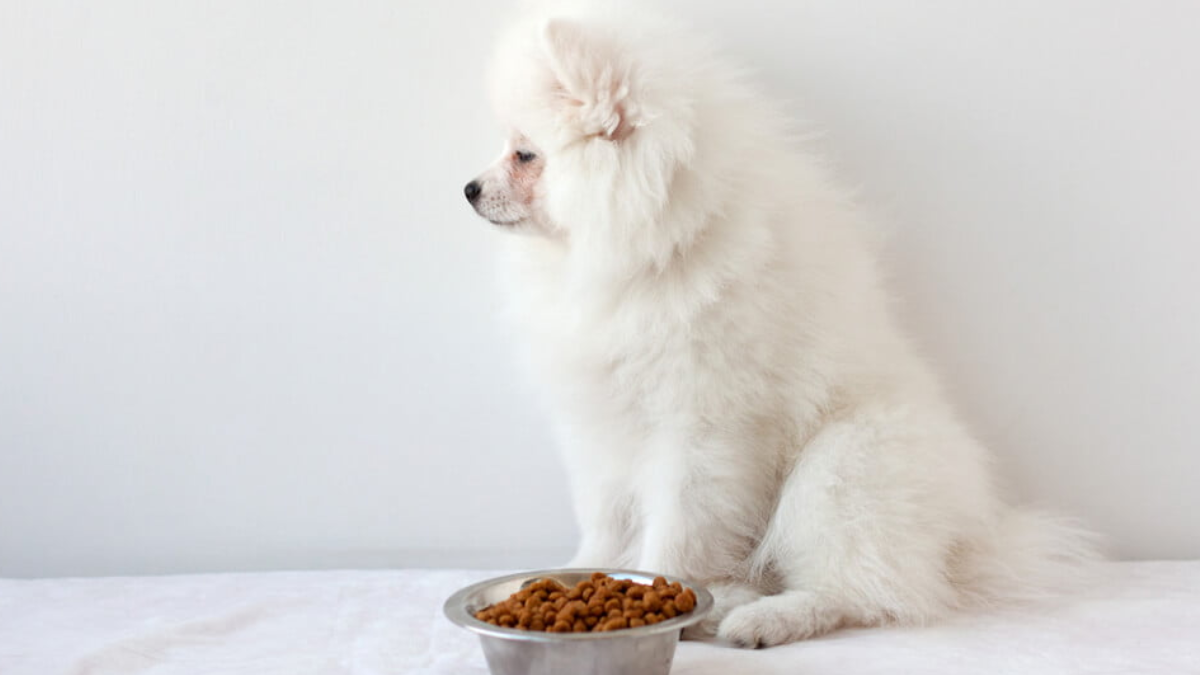
Another behavioral indicator of hunger in dogs is an increased interest in food. They may start to sniff around the kitchen or food storage areas, trying to find something to eat. Dogs may also start to beg for food or steal food from other pets or family members.
Physical Symptoms
In addition to behavioral indicators, there are also physical symptoms that may indicate that a dog is hungry. One of the most obvious signs is weight loss. If a dog is not eating enough, they will start to lose weight over time. This can be especially noticeable in dogs that are normally well-fed and have a healthy weight.
Another physical symptom of hunger in dogs is lethargy or lack of energy. If a dog is not getting enough nutrients from food, they may start to feel weak and tired. This can make them less active and less interested in playing or going for walks.
Other physical symptoms of hunger in dogs may include vomiting, diarrhea, or constipation. These symptoms can occur when a dog is not getting enough food or is eating something that does not agree with their digestive system.
Overall, dog owners need to be aware of the signs of hunger in their pets. By recognizing these indicators, owners can take steps to ensure that their dogs are getting enough food and nutrients to stay healthy and happy.
Nutritional Requirements
Caloric Needs
Dogs require a certain amount of calories each day to maintain their weight and energy levels. The number of calories a dog needs varies depending on their age, weight, and activity level. On average, a healthy adult dog needs around 25-30 calories per pound of body weight per day. Puppies and active dogs may require more calories to meet their needs.
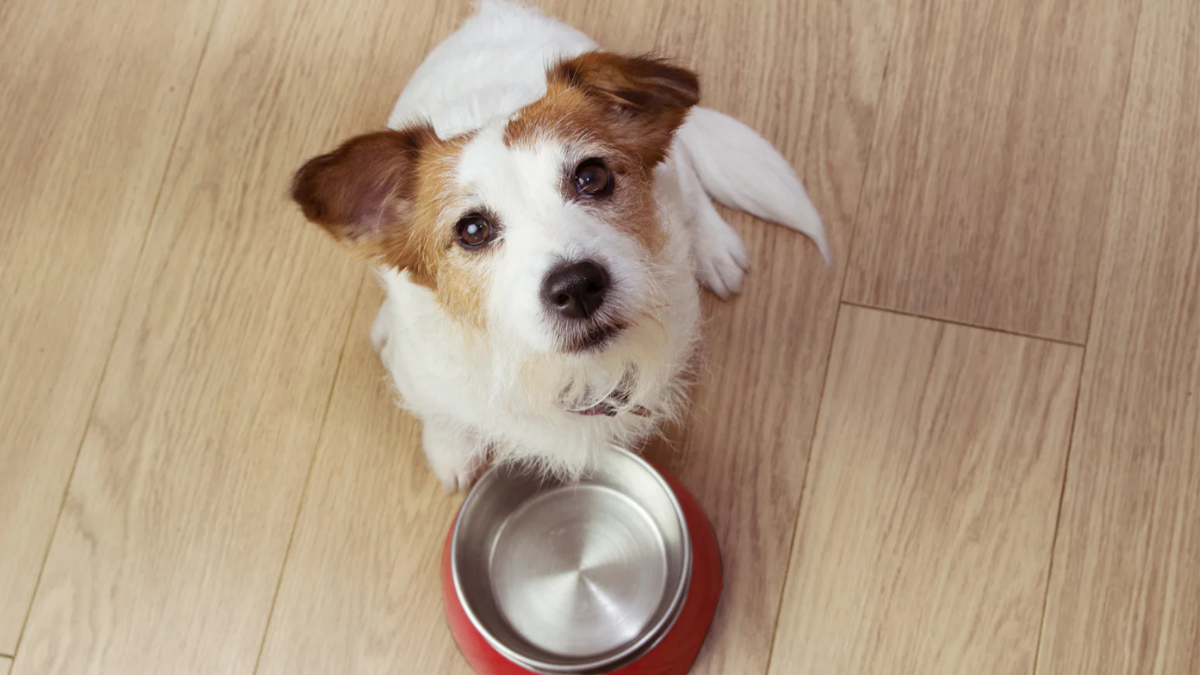
It is important to note that feeding a dog too many calories can lead to obesity, which can cause health problems such as joint pain, heart disease, and diabetes. It is recommended to consult with a veterinarian to determine the appropriate caloric intake for a specific dog.
Essential Nutrients
In addition to calories, dogs require a variety of essential nutrients to maintain their health. These nutrients include protein, fats, carbohydrates, vitamins, and minerals.
Protein is important for building and repairing tissues, while fats provide energy and help with nutrient absorption. Carbohydrates provide a source of energy and fiber, while vitamins and minerals are necessary for various bodily functions such as bone growth, immune system function, and metabolism.
It is important to provide a balanced and complete diet that includes all of these essential nutrients. Commercial dog foods are formulated to meet these requirements, but it is important to read the label and choose a high-quality food that meets the specific needs of a dog.
Overall, providing a balanced and complete diet that meets a dog's nutritional requirements is essential for their health and well-being.
Dehydration Risks
Water vs. Food Intake
Dogs can survive without food for several weeks, but they can only go a few days without water. Water is essential for a dog's body to function properly, and dehydration can lead to serious health problems. A dog's body is made up of 60-70% water, and it needs water to regulate its body temperature, digest food, and eliminate waste.
While food is important, it is not as crucial as water for a dog's survival. Dogs can survive for a longer period without food compared to water. However, it is important to note that if a dog goes without food for an extended period, it can lead to malnutrition and other health issues.
Recognizing Dehydration
Pet owners need to recognize the signs of dehydration in their dogs. Some of the common signs include:
- Dry or sticky gums
- Sunken eyes
- Loss of skin elasticity
- Lethargy
- Panting
- Dry nose
If a dog is showing any of these signs, it is important to provide them with water immediately. If the dehydration is severe, it may be necessary to seek veterinary care.
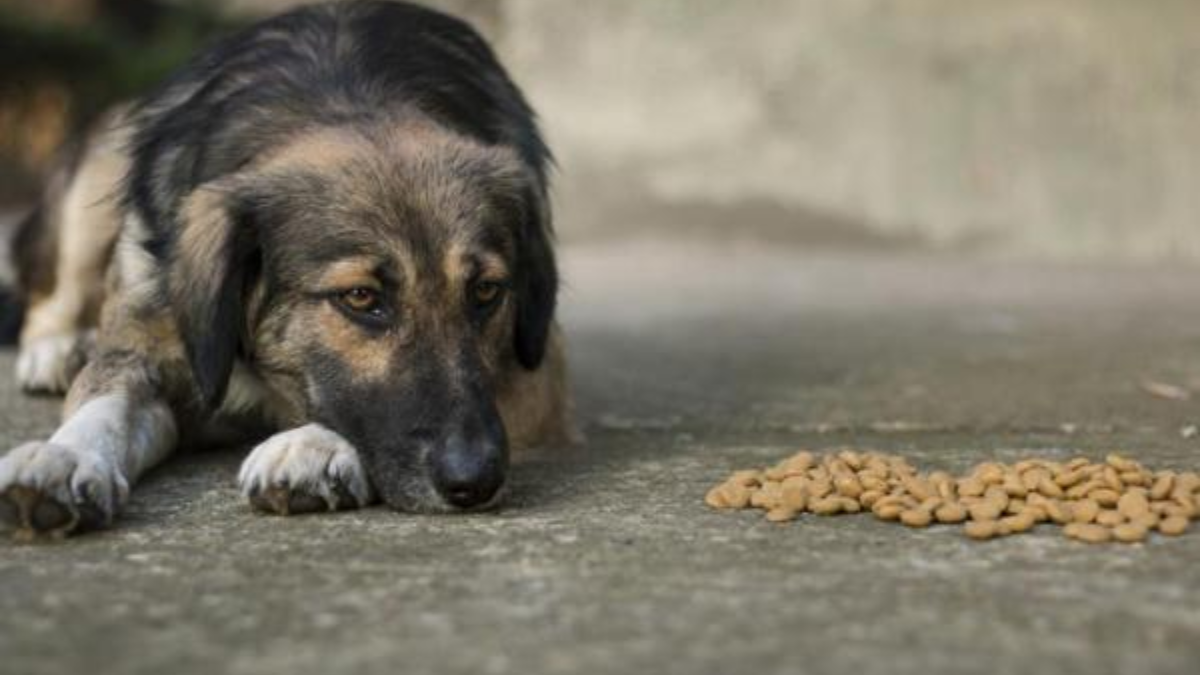
In conclusion, water is more important than food when it comes to a dog's survival. Pet owners should always ensure that their dogs have access to clean and fresh water at all times. Additionally, recognizing the signs of dehydration and providing water when needed can help prevent serious health problems.
Intervention and Care
Veterinary Assessment
When a dog has not eaten for an extended period, it is crucial to take them to a veterinarian for assessment. The veterinarian will perform a thorough physical examination to determine the underlying cause of the dog's lack of appetite. They may also conduct blood tests, X-rays, or ultrasounds to identify any underlying medical conditions that may require treatment.
Refeeding Protocols
Once the veterinarian has identified the underlying cause of the dog's lack of appetite, they may recommend a refeeding protocol. Refeeding protocols involve gradually reintroducing food to the dog to prevent complications such as refeeding syndrome. This protocol may involve feeding the dog small amounts of easily digestible food throughout the day, increasing the amount over time.
It is crucial to follow the veterinarian's recommendations when reintroducing food to the dog. Overfeeding or feeding inappropriate food can cause further complications and delay the dog's recovery.
Overall, seeking veterinary care and following a refeeding protocol are crucial steps in helping a dog recover from a prolonged period without food.

Special Considerations
Puppies and Elderly Dogs
Puppies and elderly dogs have different nutritional requirements than adult dogs. Puppies require more frequent feedings and a diet that is higher in protein and fat to support their growth and development. Elderly dogs, on the other hand, may have decreased appetite and require a diet that is lower in calories to prevent weight gain. It is important to consult with a veterinarian to determine the appropriate feeding schedule and diet for puppies and elderly dogs.
Dogs with Health Conditions
Dogs with health conditions such as diabetes, kidney disease, or liver disease may have special dietary requirements and may not be able to go as long without food as healthy dogs. It is important to follow the veterinarian's recommendations for feeding and to monitor the dog's health closely.
In general, it is not recommended to withhold food from a dog for an extended period. Dogs rely on regular meals to maintain their health and well-being. If a dog is unable to eat for more than 24 hours, it is important to consult with a veterinarian to determine the underlying cause and appropriate treatment.
Prevention and Management
Regular Feeding Schedule
One of the most effective ways to prevent a dog from going without food for too long is to establish a regular feeding schedule. This means feeding the dog at the same time every day and ensuring that they receive the appropriate amount of food for their size and activity level. It is also important to choose a high-quality dog food that meets the dog's nutritional needs.
Monitoring Health and Behavior
Owners should monitor their dog's health and behavior closely to ensure that they are eating regularly and maintaining a healthy weight. If a dog is not eating or is showing signs of illness, such as vomiting or diarrhea, it is important to seek veterinary care immediately. In some cases, a dog may require medical intervention to help them start eating again.
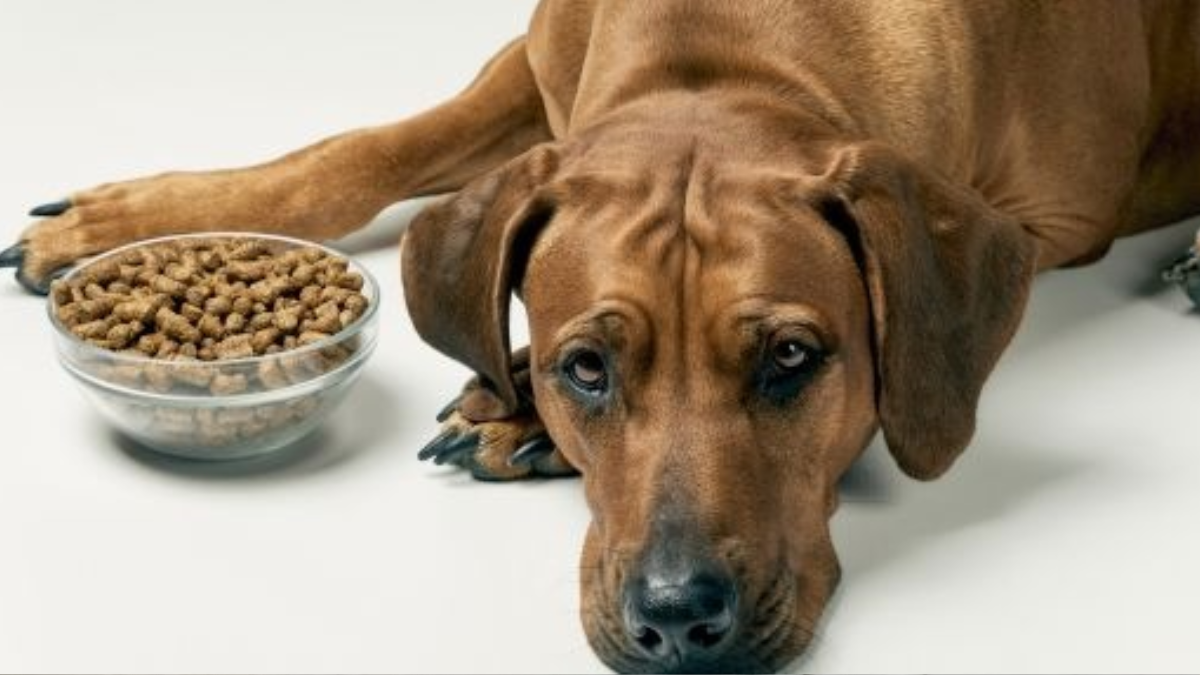
Owners should also be aware of any changes in their dog's behavior or appetite. If a dog suddenly stops eating or seems to be losing weight, it is important to investigate the cause and take appropriate action. This may involve changing the dog's diet, providing additional exercise, or addressing any underlying health issues.
By establishing a regular feeding schedule and monitoring their dog's health and behavior, owners can help prevent their dogs from going without food for too long and ensure that they remain healthy and happy.
Conclusion:
In conclusion, the question of "How Long Can a Dog Go Without Eating?" is pivotal for responsible pet ownership. While dogs can survive for several days without food, prolonged periods without eating can indicate underlying health issues. Pet owners must monitor their dog's appetite closely and seek veterinary attention if they refuse food for an extended period.
Factors such as age, health condition, and breed can influence a dog's ability to tolerate food deprivation. However, regardless of these factors, persistent loss of appetite warrants immediate concern and requires professional evaluation by a veterinarian.
To ensure the well-being of our furry companions, it's essential to provide a balanced diet, regular exercise, and a stress-free environment. Additionally, addressing any potential medical concerns promptly can improve the overall health and longevity of our dogs.
In summary, responsible pet ownership involves being proactive about understanding and addressing our dog's dietary needs. By staying informed and attentive, we can help ensure our dogs receive the necessary care and attention to lead happy, healthy lives by our side.
Frequently Asked Questions
- How many days can a dog survive without food before it becomes critical?
- Dogs can survive for up to five days without food, but beyond that, it becomes critical. The exact time frame depends on the dog's age, size, and overall health. However, it is essential to note that dogs cannot survive without water for more than three days.
- What are the signs that a dog is not eating enough to sustain its health?
- Some of the signs that a dog is not eating enough to sustain its health include weight loss, lethargy, weakness, and dehydration. Other signs may include a lack of interest in food, vomiting, diarrhea, and changes in behavior.
- What should you do if your dog refuses to eat post-surgery?
- If your dog refuses to eat post-surgery, you should consult your veterinarian immediately. Your vet may recommend a change in diet or prescribe medication to stimulate your dog's appetite.
- What are the implications of a dog not eating during the end-of-life stage?
- During the end-of-life stage, a dog's body may start shutting down, and they may lose their appetite. This is a natural process, and it is essential to ensure that the dog is comfortable and pain-free during this time.
- How does the lack of food intake affect a dog with a serious illness such as cancer?
- A lack of food intake can have severe implications for a dog with a serious illness such as cancer. It can weaken their immune system and make them more susceptible to infections. It can also lead to weight loss and muscle wasting, which can further compromise their health.
- What are the potential complications for an elderly dog that stops eating?
- Elderly dogs that stop eating may experience a range of complications, including weight loss, muscle wasting, and a weakened immune system. They may also be more susceptible to infections and may have a harder time recovering from illnesses. It is essential to consult with a veterinarian if your elderly dog stops eating.
